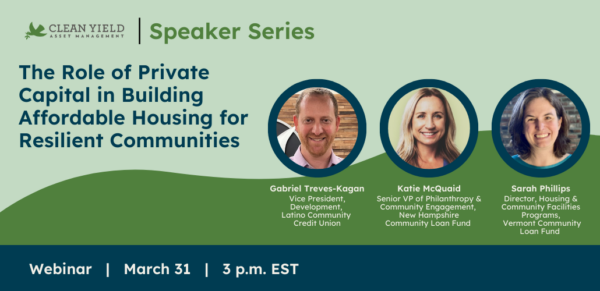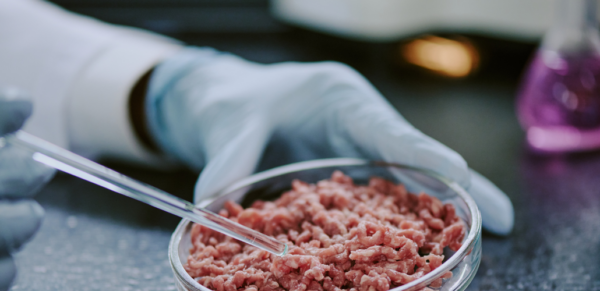Clean Yield Celebrates Cooperative Month

October is Cooperative Month! In honor of Cooperative Month, we want to share a bit about what co-ops are and why Clean Yield loves them.
What is a co-op?
A co-op is a group or organization that is owned and run by its members or participants (rather than stockholders), who mutually share in the organization’s successes and struggles. There are five types of cooperatives: consumer, worker, producer, purchasing/shares services, and multi-stakeholder. Clean Yield views the egalitarian co-op model as a way to strengthen the fabric of an organization and add resilience to communities. Cooperatives are based on the values of self-help, self-responsibility, democracy, equality, equity, and solidarity – all values that Clean Yield supports.
According to the National Cooperative Business Association CLUSA International, there are 65,000 co-op establishments in the United States, and one in three Americans are members of a co-op.
Worker co-ops have increased dramatically since 2008.
Following the 2007-09 financial crisis, the worker cooperative model was seen as a way to build economic resilience and stability. Between 2008 and 2018, worker-owned cooperatives in the United States nearly doubled, from 350 to 600. Cooperatives still represent a minute percentage of businesses in the United States, but studies from several Canadian provinces reveal that the five-year survival rate of cooperatives was 60-80%, compared to 20-40% for conventional businesses. Worker cooperatives not only share in the success of the company, they share the burden during hard times. Employee owners have an interest in the success of the business and have a say in how to survive a crisis by reducing costs or exploring new markets.
Clean Yield supports co-ops that are aligned with the economy we seek – an economy that is just, sustainable, and equitable.
At Clean Yield, we invest both directly and indirectly in cooperatives. In fact, our first private placement investment in 2007 was in the producer co-op Organic Valley – Cooperative Regions of Organic Producer Pools (CROPP), the largest farmer-owned organic cooperative in the United States. Producer co-ops are owned by the producers or farmers who join the co-op, which markets and sells their products. We also invest in worker co-ops, like fair-trade pioneer Equal Exchange. Some of the companies we invest in participate in purchasing co-ops, which are made up of small businesses that have joined forces to get better discounts and offers on products and services. For example, SunCommon and Sunwealth are members of the Amicus Solar Cooperative, through which they purchase solar panels and related equipment. We also invest in resident-owned cooperatives (ROCs) through the VT Community Loan Fund and the NH Community Loan Fund. The NH Community Loan Fund was a pioneer in supporting ROCs and most recently helped Two Rivers Mobile Home Community Cooperative become the 145th ROC in the state of New Hampshire. Mortgages to ROCs account for 62% of the NH Community Loan Fund’s investment portfolio.
Want to learn more?
Interested to learn more about co-ops and how the role they could play in your impact investment portfolio? Drop us a line!
More News & Insights
Upcoming Speaker Series: The Role of Private Capital in Building Affordable Housing for Resilient Communities
We invite you to join us on March 31 at 3 p.m. ET to participate in this critical conversation on affordable housing.
Proxy Voting: A Critical Tool for Individuals and Investors to Influence Corporate Behavior
Learn how proxy voting gives equity (stock) investors a powerful tool to pressure corporations to act more responsibly.
A New Kind of Meat
Through Clean Yield’s U.S. Sustainable Investment Forum membership, Liz Levy attended a meeting to gain insights on the emerging cultivated meat industry.


